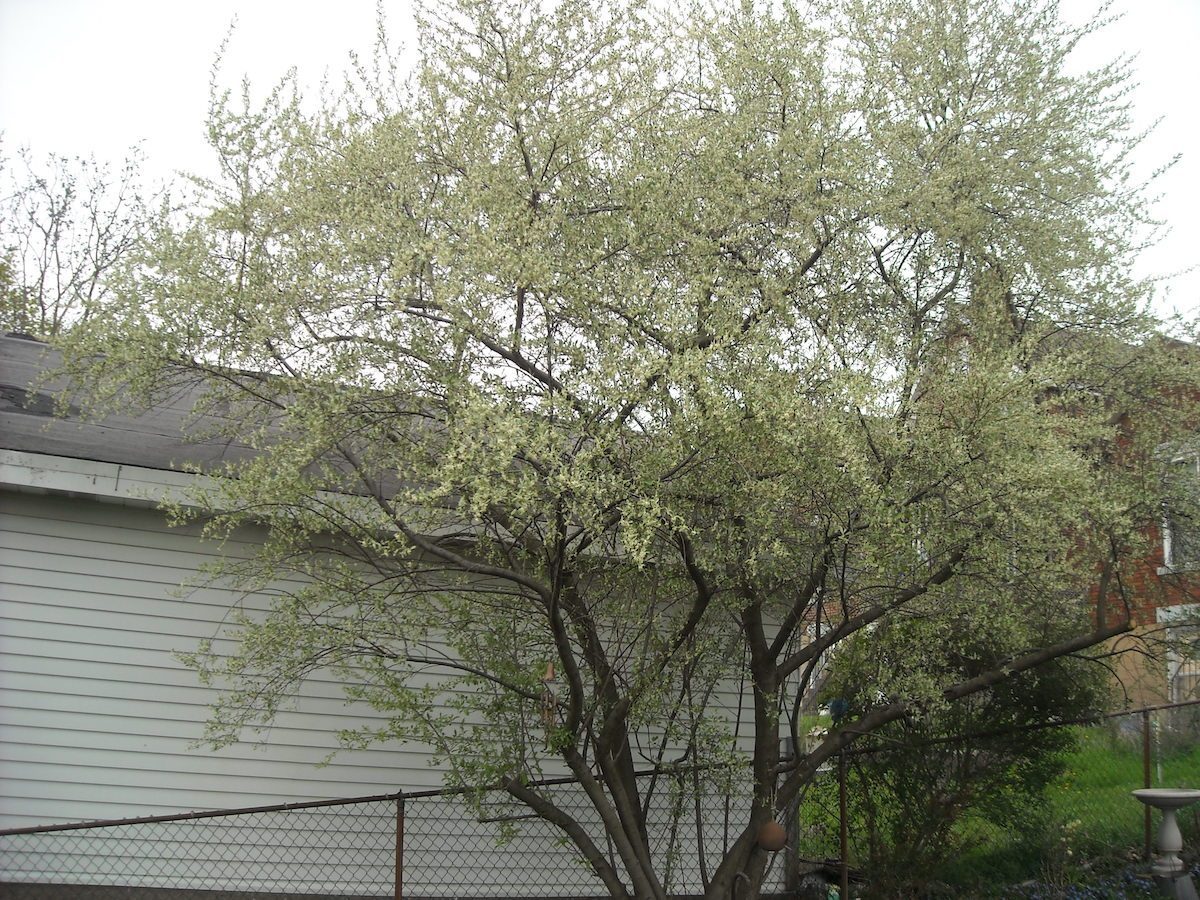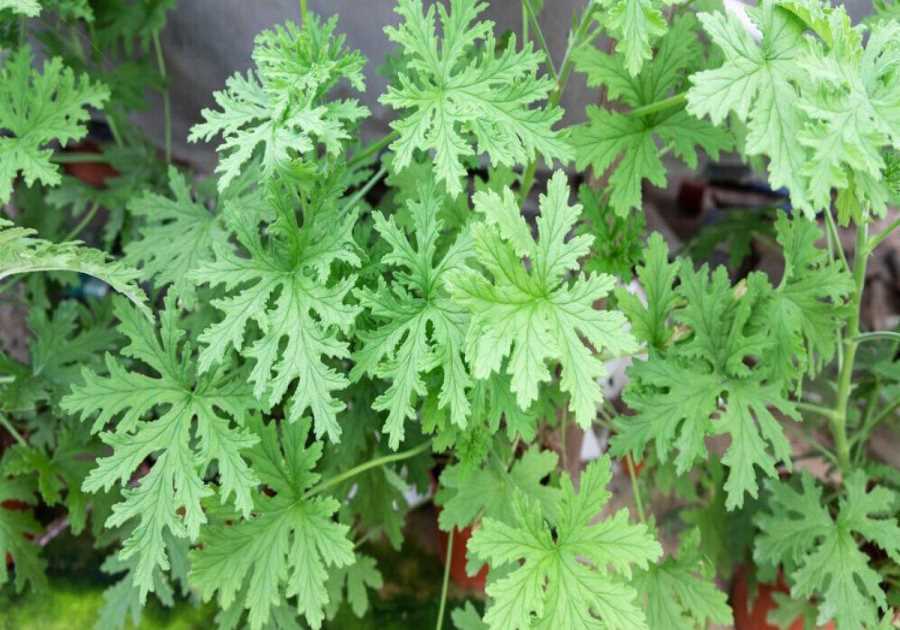Reader James Seifert of Pittsburgh, Pennsylvania recently sent us a photo with a question: “This shrub (above) was labeled as a witch hazel. Is it?”
For the answer, we reached out to gardening expert Melinda Myers. “It looks as though you ended up with a Russian olive tree (Elaeagnus angustifolia),” she says. “Perhaps the plant was mislabeled, or possibly the witch hazel died and a seedling of Russian olive took its place.”
That’s unfortunate, because Myers says these trees are aggressive. They invade natural areas, outcompeting native plants, disrupting waterways and altering wildlife habitats. So homeowners shouldn’t add Russian olive trees to their landscapes. The tree is considered invasive in most of the United States and parts of Canada.
Here are some more trees you should never grow in your yard.
Trees You Should Plant Instead of Russian Olive

A Russian olive tree typically grows between 10 to 25 feet. It can thrive in a variety of conditions, making it particularly good at adapting in areas where it’s not wanted.
“Russian olive is native to Europe and western Asia and was brought to the U.S. in the 1800s as an ornamental plant,” says Myers. “During the 1980s, it was recommended for wildlife plantings, erosion control and windbreaks.”
Although various birds will visit this tree to snack on its fruit, this can further the spread the seeds of this invasive plant.
“It is difficult to control Russian olive because the trees are deeply rooted and capable of re-sprouting from the root crown,” according to the California Department of Fish and Wildlife. “To control an infestation, it is important to catch it early and remove trees before they flower. Established populations may require significant effort and several control techniques to eliminate.”
Instead of planting Russian olive trees, stick to native trees that better provide for birds. Some popular picks include winterberry, elderberry, hawthorn and beautyberry. Consult your local university extension office or garden center to find the top recommended options for your area.
Did you miss our previous article...
https://rsssuperfeeds.com/life-hacks/backyard-gazebos-for-summer-9-ideas






